
     
| |

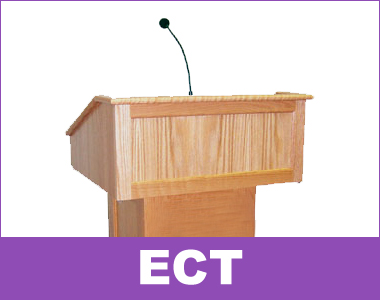
|
 |
 |
 |

The October conference in Toronto will feature a range of knowledgeable, passionate speakers, including Donna Andrews, Ph.D., and Joel Reiter, M.D., the psychologist and Harvard-trained neurologist who together developed the Andrews-Reiter approach to epilepsy.
Attendees will also hear from Joshua Kors, an investigative reporter who was won many awards for his coverage of health issues. Kors has epilepsy and has benefited from greatly from the A-R techniques.
Below is a list of all the speakers and their biographical information. |
 |

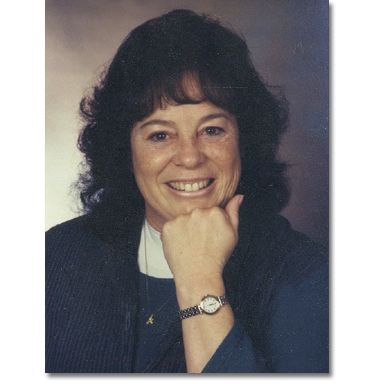

|

Epilepsy Experts
Donna Andrews, Ph.D.
Neuropsychologist Donna Andrews is the co-director of the Andrews-Reiter Epilepsy Research Program in Santa Rosa, California. She is a pioneer in the use of behavioral therapy to treat epilepsy.
Dr. Andrews is the author of Taking Control of Your Epilepsy, a comprehensive guide for patients seeking to halt their seizures. Her work has been published in numerous medical journals, including Seizure, and in respected collections of medical research, including Complementary and Alternative Therapies for Epilepsy, edited by neurologists Orrin Devinsky, Steven Pacia, and Dr. Steven Schachter, professor of neurology at Harvard Medical School.
Dr. Andrews and Harvard-trained neurologist Joel Reiter, co-director of the A-R Research Program, were the first doctors in the country to make several critically important medical discoveries about epilepsy. Through their research, they found that seizures have definite triggers, pressure factors in a patient's life that spark an attack. Doctors had previously believed that epileptic attacks struck randomly.
With further research, Andrews and Reiter showed that seizure triggers do not have to be physical pressures. They can also be emotional. Stress, anger, fear and shock, they demonstrated, can also spark seizures in epileptics.
Applying these discoveries, the Andrews-Reiter clinic teaches epileptics several key skills. Patients learn to
recognize their auras, the physical cues that a seizure is beginning. And patients learn to recognize their triggers, the emotional and physical pressures that spark seizures in epileptics.
Dr. Andrews has shown that if a patient identifies his auras and responds with focused relaxation instead of panic, he can stop his brain's electrical misfirings before those misfirings become full-blown seizures.
To establish long-term health, at their clinic in California, Andrews and Reiter start patients on the path to resolving the emotional pressures that trigger their seizures.
In 30 years of treating epileptics with this approach, Dr. Andrews has helped thousands of patients halt their seizures, many of whom were considered refractory, or untreatable, cases. Her work has drawn global recognition and been called "an important step forward in the treatment of epilepsy."
Dr. Andrews' interest in epilepsy came from personal experience. As a child, she suffered from debilitating seizures. Doctors told her there was nothing she could do beyond taking medication. Refusing to accept that prognosis, Andrews began researching the medical condition and investigating its function in her body, explorations that led to the Andrews-Reiter methods.
Today Dr. Andrews has been seizure-free for over 40 years and has been off all medication for several decades. She continues to treat patients, as well as lecture about the A-R approach at medical facilities across the U.S., Europe and Canada.
|
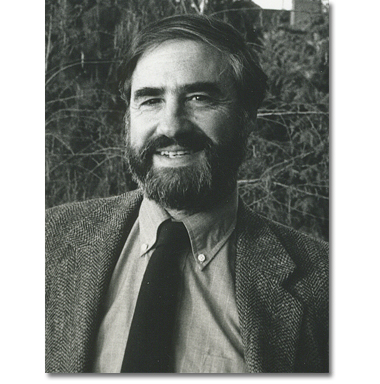
|
Joel Reiter, M.D.
Neurologist Joel Reiter is the medical director of the Andrews-Reiter Epilepsy Research Program in Santa Rosa, California.
Dr. Reiter is the author of numerous books, including Taking Control of Your Epilepsy and Epilepsy: A New Approach — What Medicine Can Do; What You Can Do For Yourself. His work has been published in numerous medical journals, including Seizure, and has been featured in respected collections of medical research, including Complementary and Alternative Therapies for Epilepsy, edited by neurologists Orrin Devinsky, Steven Pacia, and Dr. Steven Schachter, professor of neurology at Harvard Medical School.
Dr. Reiter
conducted pre-med research at Harvard University and earned his M.D. from the New York University School of Medicine. He also served as a major in the U.S. Army Medical Corp and as a professor of medicine at the University of California, San Francisco.
Dr. Reiter launched a private neurology practice in 1974 but quickly grew frustrated, as many of his patients were suffering from repeated seizures, epileptic attacks that medication failed to stop. He began exploring alternative treatments. Soon Dr. Reiter connected with Dr. Andrews, an epileptic herself who had developed techniques to halt her own seizures.
In 1981 they created a pilot project, using Andrews' behavioral techniques to treat six of Dr. Reiter's patients, all of whom were suffering from intractable seizures. The project proved a remarkable success and led to the creation of the Andrews-Reiter Epilepsy Research Center in 1983.
During his three decades as medical director of the center, Dr. Reiter has overseen the treatment and recovery of thousands of patients, many of whom were considered untreatable cases.
Dr.
Reiter's work has earned him widespread acclaim. He has been invited to lecture before medical organizations across the globe, from Stanford Medical School to the International Epilepsy Congress in Prague.
|

|
Siegward Elsas, M.D.
Neurologist Siegward Elsas is a fellow at the Friedrich-Husemann Hospital
for Integrative Psychiatry in Buchenbach, Germany, and an
internationally recognized expert in the treatment of epilepsy.
Dr. Elsas served as an assistant professor at Oregon Health and Sciences University, where he conducted pioneering research into electrophysiology and sensory perception, including an examination of the triggers of epileptic seizures. He studied neurology at UCLA and served as a post-doctoral fellow at the University of California, Berkeley.
As a practicing physician, Dr. Elsas has spent years treating patients with the Andrews-Reiter behavioral approach. He works with patients whose seizures continue despite medication, helping them develop introspective accounts of their seizures. Dr. Elsas urges his patients to write seizure diaries, in which they record the story of each seizure, including their thoughts and feelings just before an attack.
Dr. Elsas found that by writing these journals,
patients began seeing connections between triggers and attacks, realizing then how to alter their behavior to prevent additional seizures.
Combining these behavioral approaches with EEG and heart rate analysis, Dr. Elsas has been pushing the Andrews-Reiter techniques to the next level, in the process helping numerous patients stop their seizures.
In 2005 the National Institutes of Health honored Dr. Elsas for his research with the Mentored Patient-Oriented Research Career Development Award.
|
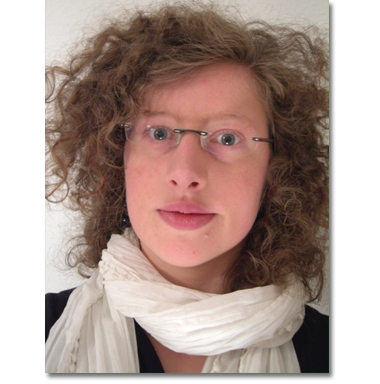
|
Rosa Michaelis
Rosa Michaelis is a medical student at Witten/Herdecke University in Germany, where she has focused on the treatment of epilepsy. She has conducted studies at facilities across the globe, from the University of Pais Vasco in San Sebastían, Spain, to London, to the Oregon Health and Science University in Portland, Oregon.
Michaelis has performed important research on epilepsy, including a recent study examining the success of the Andrews-Reiter approach, research she will be sharing at the Toronto conference.
Outside the lab, Michaelis remains active in the medical community, volunteering at a clinic in Northern Ireland and tutoring medical students in Tirana, Albania. In her spare time, she plays violin and studies yoga and practical philosophy.
|

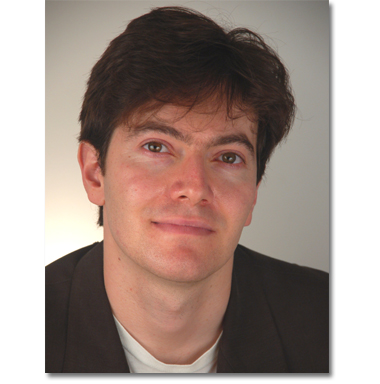
|
Patients and Families
Joshua Kors
Joshua Kors is an investigative reporter for The Nation, where he covers health issues.
He is the winner of the National Magazine Award, George Polk Award,
IRE Award, the National Press Club's Hume Award, the Mental Health Media Award and many others. He was also a finalist for Harvard's Goldsmith Prize for Investigative Reporting, the American Bar Association's Silver Gavel Award, and the Medill Medal for Courage in Journalism.
His reporting on health issues has been featured on PBS, CNN and the BBC. He also collaborated with ABC News' Bob Woodruff on "World News Tonight" and "Nightline" investigations, part of a series on health issues in the military, which won the Peabody Award.
Kors
has testified twice before the U.S. Congress, in July 2007 and September 2010, and his health reporting has sparked multiple investigations by the Pentagon.
He has written extensively about his own epilepsy, detailing how the Andrews-Reiter techniques helped him stop his seizures and dramatically improve his health.
To learn more about Kors' experience with the Andrews-Reiters approach, click here. A version of the same article aimed at younger readers is also available here.
|

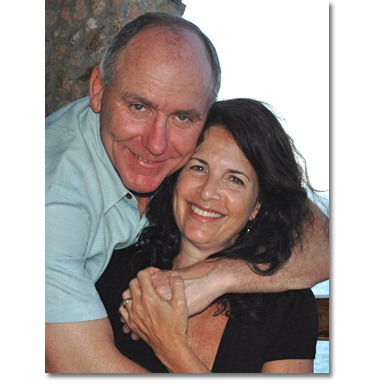
|
Conference Directors
John Park and Ellen Novack
John Park and Ellen Novack are the directors of Epilepsy Conference Toronto, a gathering of families, patients and medical professionals interested in the Andrews-Reiter approach to epilepsy.
Park and Novack became active in the epilepsy community after their son Trevor began having seizures at the age of 13. The family's effort to get Trevor the medical care he
needed proved complicated. Park and Novack brought their son to several neurologists, with mixed results.
When Park and Novack learned about the Andrews-Reiter behavioral approach to epilepsy, they flew to California to meet with Dr. Donna Andrews. Trevor began treatment at the Andrews-Reiter Epilepsy Research Center soon after, and in the months since his treatment, his health has improved dramatically.
Trevor's recovery spurred Park and Novack to organize ECT, a conference where both neurologists and families can learn more about the A-R approach.
Park has worked in the health field for many years. In 1995 he founded the Canadian Medical Network, an international health management company that helps clients navigate the global healthcare system. Novack had a public relations company, Grand Events, and is now working on a gardening book.
The couple have three children.
|
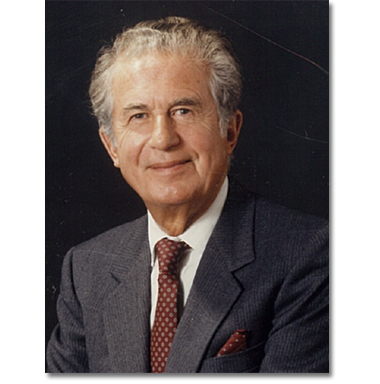
|
Dedication
Bernard Novack
Epilepsy Conference Toronto is dedicated in loving memory to Bernard Novack (1912-2010), father of conference director Ellen Novack. The conference is funded through the Bernard Novack Trust Fund.
Novack is best described as a man who always had a smile on his face, a story to tell and a song to sing.
He was content. Everything was the best: his wife was the best wife, his kids were the best kids, his grandchildren the best grandchildren, his friends the best friends. And his most recent meal was always "the best meal I ever had.”
Novack’s relationship with his wife, Diane, lasted almost 60 years. It was an ongoing love story.
He ran Novack’s Pharmacy in downtown Toronto for more than four decades. During the Depression, he took the streetcar to the end of the east line and walked into every drug store along the way, finally getting a job at Nicholls Drug Store. After working there five years, he bought Mr. Nicholls’ other drug store at Church and Wellesley.
His kindness was legendary. His staff never left him, people would borrow money from him to play bingo, and over the years, he provided summer and part-time jobs for many of his nieces and nephews.
His death feels like the end of an era, the loss of someone who defined the art of being a gentleman.
We never heard him say a bad word about anyone, and no one has ever had a bad word to say about him. Until his death, he continued to marvel at everything. In his words: “Isn’t that something?”
Novack had a special relationship with his six grandchildren. He was especially close with Trevor, teaching him songs, and reassuring us when we were anxious about Trevor’s epilepsy.
Novack's favorite quotes came from Julius Ceasar. We will always think of him when we hear Shakespeare's words: "His life was gentle, and the elements so mix'd in him that Nature might stand up and say to all the world, 'This was a man!'"
 Donations for Epilepsy Conference Toronto be made through: Donations for Epilepsy Conference Toronto be made through:
The Bernard Novack Trust Fund
c/o Epilepsy Ontario
1 Promenade Circle
Suite 308
Thornhill, Ontario, L4J 4P8
|
|
   |
|